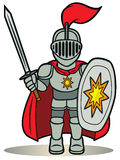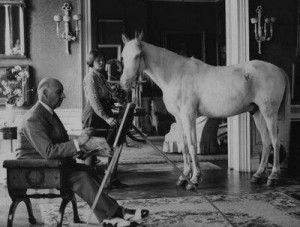Hello, my friends, and welcome back to my ten minutes of podium time. I’ve been re-reading the Dark Tower Series, and so I almost wrote welcome back to our palaver there. But while that word doesn’t belong exclusively to King, I probably shouldn’t steal it for my blog post. (Side note: I told my good pal, Kelly, the other day that if I only do one thing in life with my writing, I sure hope it’s managing to come up with a word like lobstrosities. If you’ve read it, you know what I mean.) But here am I, barely started, and already digressing.
Last month I started chatting on a subject I titled, “The Author’s People”, and to reiterate what I already said last time, most of the questions I get on social media are from people who want to write. That doesn’t surprise me in the least. Once a person starts tip-toeing through the world of fiction a lot of them find they like it there. So, why not be part of that world by creating instead of merely reading what others have created? How many interviewers have asked an author: “What inspired you to start writing?” to which, it seems to me, more often than to the author will say something along the line of, “Well, I started reading…”
That’s awesome. That’s why I take a lot of pride in the fact that many of the people who associate with me on social media (good gods, I despise the term follow) are people who are looking for information on how to get published, who to go to get published, what kinds of things they should know about creating/polishing their manuscripts, and all the ins and outs and ups and downs in between those questions. I’m no expert—they know that and I know that—but it is very cool to have a little bubble of energetic networking around us. Now, a friend of mine once told me that if you’re a writer, writing about writing, it means you don’t have anything interesting to say. It’s most likely a true statement – I am definitely not the most interesting person out there by any means. But as long as I keep getting asked the questions, I’m going to keep answering them. So…
Last month I started up a series of posts entitled “The Author’s People,” in order to help those who were asking, figure out the whos and the whats – not just who these people are, but how these people help and what an author should be able to expect from their involvement. This month I’d like to take a look at beta readers and cover artists.
Beta Readers
 Let’s take a quick trip back through memory… grade four, grade five, grade six?… that first time we were given the assignment of telling a speech in front of (DUNH, DUNH, DUNH!) the whole class. It was terrifying, it was hard, and we had no idea if we were going to make total fools out of ourselves when we started in on the whole “Why I love my Guinea Pig” thing. If you were like me, once you stopped vomiting and/or coming up with elaborate and preposterous plans to get yourself out of school for the rest of your life, you ended up convincing one of your best friends (or your mom, dad, uncle, second cousin, way-too-nice-librarian, or your cat) to listen to the speech and give you some feedback on it before the big day came around.
Let’s take a quick trip back through memory… grade four, grade five, grade six?… that first time we were given the assignment of telling a speech in front of (DUNH, DUNH, DUNH!) the whole class. It was terrifying, it was hard, and we had no idea if we were going to make total fools out of ourselves when we started in on the whole “Why I love my Guinea Pig” thing. If you were like me, once you stopped vomiting and/or coming up with elaborate and preposterous plans to get yourself out of school for the rest of your life, you ended up convincing one of your best friends (or your mom, dad, uncle, second cousin, way-too-nice-librarian, or your cat) to listen to the speech and give you some feedback on it before the big day came around.
That’s the beta—right there. They’re the person an author bring their sparkly new manuscript to in order to preen in its glorious, radiant light. They’re usually working out of the goodness of their heart (or a promise of return favour) and they rarely get the praise they deserve once everything is said and done. Let me put it this way: if (as I referred to them last time around) the publisher is the author’s High King and the editor is that king’s magistrate, the beta reader is that author’s knight. Because even though they’re working for the benefit of King and Country, they’re out there doing what they do because they love it and because they want to protect the people (played by the author in this wee Nottingham drama of ours).
Unfortunately, there’s only one way to answer the question, “What should you, as an author, expect from your beta?” And that answer is: Nothing. You should expect nothing. You can hope for everything, but let’s face it; unless you are paying your beta you have no right to expect a single thing. The publisher has a monetary stake in a novel. The editor gets paid by the publisher, and, as such, also sees financial value for the work. The author gets paid to write it. Most of the time your beta won’t see anything more than a pat on the head and/or a hearty thank you. So unless an author is willing to ensure that the beta sees payment as well, they should not make demands on the beta or get ugly if they don’t think that beta is living up to the job. The beta reader is the one doing the favour here.
So what might an author hope to get out of a beta reader? They can hope for the world. The beta reader is the first edit that a book is going to get outside of the author’s. They’re also the first outside reader. If an author is lucky, they’ll point out where your story is weak, where it’s too hard, and bring attention to how many times the novel reads “my” instead of “his.” (Self insertion, what? Who, me?!)
It’s the author’s job to listen to what they have to say with an open mind and a clear understanding that they’re trying to help. Nobody likes to point out somebody else’s faults (and if there are people out there that do, they might not be the best choice for this position) and they are going to sweat and cringe and feel awful. Appreciate them and shower them in gratitude, even if you don’t agree with them.
Cover Artist
 A good cover can make or break your book, no word of a lie. The problem is what you think is a good cover, or what she thinks is a good cover, or what he thinks is a good cover, compared to what I think is a good cover, are all completely different. Art is in the eye of the beholder after all. It’s the cover artist’s job to know the novel’s market, have an idea of the story, the characters, and the setting, and weave all those things together into something visually pleasing/striking that will garner interest in your novel with a single glance. There are dozens, hundreds, thousands of novels out there and as people go scrolling through their Amazon “have you seen this?” lists or new-release posts, the skill of the cover artist is the thing that’s going to grab that new reader that has never heard anything about you (or your little dog, too!).
A good cover can make or break your book, no word of a lie. The problem is what you think is a good cover, or what she thinks is a good cover, or what he thinks is a good cover, compared to what I think is a good cover, are all completely different. Art is in the eye of the beholder after all. It’s the cover artist’s job to know the novel’s market, have an idea of the story, the characters, and the setting, and weave all those things together into something visually pleasing/striking that will garner interest in your novel with a single glance. There are dozens, hundreds, thousands of novels out there and as people go scrolling through their Amazon “have you seen this?” lists or new-release posts, the skill of the cover artist is the thing that’s going to grab that new reader that has never heard anything about you (or your little dog, too!).
So, what you’re going to want to do is…
Actually, there’s absolutely nothing an author can do. The cover artist works for the publisher who has their own specific requirements and expectations. If an author is lucky enough to be asked for an artistic synopsis to give to the cover artist, I recommend they be as concise and precise as they possibly can, that they offer up all kinds of links and/or pictures to help explain themselves, and then I suggest they cross their fingers and pray for an outcome that pleases everyone. Try to keep in mind that the artist wants their work to be appreciated and respected and that they’re doing the best job they can within the limitations that they’re given from the publisher.
Being blessed by getting the opportunity to work consistently with Less Than Three Press (who are extremely good about working with their author’s ideas and suggestions), I’ve had relatively few issues when it comes to cover art. That it isn’t the way it is with a lot of publishers, however, and the bigger the brass monkey gets, the harder and more inflexible its balls are. I suppose a person could always try to find out who the artist is going to be and send them flowers or cookies or wine or whatever, but I’m not sure that’s going to benefit the project at all. It might even be considered a little shady in an “influencing mutual business partners” kind of way.
And once again, that’s it for this round. But join me next month wherein I’ll tackle the next two important people in an author’s life… bloggers and reviewers. (I won’t literally tackle them, of course; that would be all kinds of mean and downright rude. ;))
Until next time,
AF Henley <3
 Henley was born with a full-blown passion for run-on sentences, a zealous indulgence in all words descriptive, and the endearing tendency to overuse punctuation. Since the early years Henley has been an enthusiastic writer, from the first few I-love-my-dog stories to the current leap into erotica. A self-professed Google genius, Henley lives for the hours spent digging through the Internet for ‘research purposes’ which, more often than not, lead seven thousand miles away from first intentions but bring Henley to new discoveries and ideas that, once seeded, tend to flourish.
Henley was born with a full-blown passion for run-on sentences, a zealous indulgence in all words descriptive, and the endearing tendency to overuse punctuation. Since the early years Henley has been an enthusiastic writer, from the first few I-love-my-dog stories to the current leap into erotica. A self-professed Google genius, Henley lives for the hours spent digging through the Internet for ‘research purposes’ which, more often than not, lead seven thousand miles away from first intentions but bring Henley to new discoveries and ideas that, once seeded, tend to flourish.
Henley has been proudly publishing with Less Than Three Press since 2012, and has been writing like mad ever since—an indentured servant to the belief that romance and true love can mend the most broken soul. Even when presented in prose.
Henley’s newest release, Wolf, WY hit the market on October 21st and is now available at your favourite online book retailer. Check it out on Amazon, or directly through LT3 Press.
For more information please stop by for a visit at afhenley.com.


I just can’t fully relate to your analogy. And it’s not just because I’m a fantastic actor who has no trouble in front of people, though I wouldn’t blame you for thinking so *fabulous hair flip*. When I started school I was the shyest person in class. Playtime I was in a corner by myself with my favorite toy unless someone else got it first then I’d just sit by myself. So imagine the bizarreness when I get up in front of the class and have no issues talking. I was also never prepared because, in another twist, I was far too nervous to perform for close relatives and friends alone. And yet, never prepared and always making it up as I go, I could do a puppet show, talk about my new knife through the gut prank, or tell lies about our Presidents without a batting an eye.
I did, however, have an 11th grade teacher who forced us to have our stories reviewed by at least one person who had to fill out a sheet before turning it in for grading. Which I did. And struggled not to take their criticisms personally.
And wouldn’t you know it, when she had us read them to the class….I couldn’t do it. xD We were allowed to have someone else read it for us. During “award night” I got a made up award from that teacher for “most creative writer.” Don’t mind me I’m just bragging.
Thank you for the insights once again sir. It’s a lot of fun to see you break down the different positions authors will find themselves working with.
Hmmm….long comment only a two sentences about your actual article. May have to work on that in the future. xD
Don’t you work on anything, I love your comments!
Glad you enjoyed, Frosty. And I think it’s very cool that you don’t mind standing up in front of people and sharing. Maybe you can do it on my behalf sometime? XD
Now I wonder what the authors with multiple Beta Readers do. Wonder how they balance the different views and opinions into their final manuscript. Hm…
As for book covers, I didn’t use to have the need to look at them much. Free-read fiction don’t typically come with a book cover. The blurb catches my attention or it doesn’t. As talented as some of these artists are, lately it’s been more of a “If there’s a picture of a man on that cover, I don’t touch it.” It gets old really, really fast to keep seeing men. I almost cry with relief whenever I come across ones that didn’t have a picture of men on them. Now that I think about it. Only one book out of the entire collection of your novels has a man on it, and thank the gods it wasn’t like a photograph, nor was the man naked, or semi-naked. XD
(And I can hear phantom booing of my comment about naked men. XD)
Thank you for posting! <3
You’re very welcome, thank YOU for reading and commenting! It’s always hugely appreciated.
I’m not a big user of the body image for covers, but only because I’m a frequent complainer… “but it doesn’t even look like him!” I’d be a big old liar if I didn’t say a nice body catches my eye, though.
I love your series about the author and his relationship with the people who are involved in the novel she/he is working on!
I have to voice a different opinion here, my friend, and for that I want to apologise. But please let me elaborate.
When an author has chosen a person as his beta reader said person is usually someone close to the author. In best of cases it is a friend. My guess is it is a person the author puts a lot of trust into anyway.
The beta reader is the first person other than the author getting his hands on the freshly written novel. That takes tons of trust on the part of the author. For the first time he is handing over his baby.
So in my opinion the author has very much the right to expect something from his beta reader. It is honesty and respect. And the knowledge that the beta is aware of the responsibilty he has for the work of fiction and the author putting so much trust into him.
<3